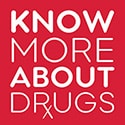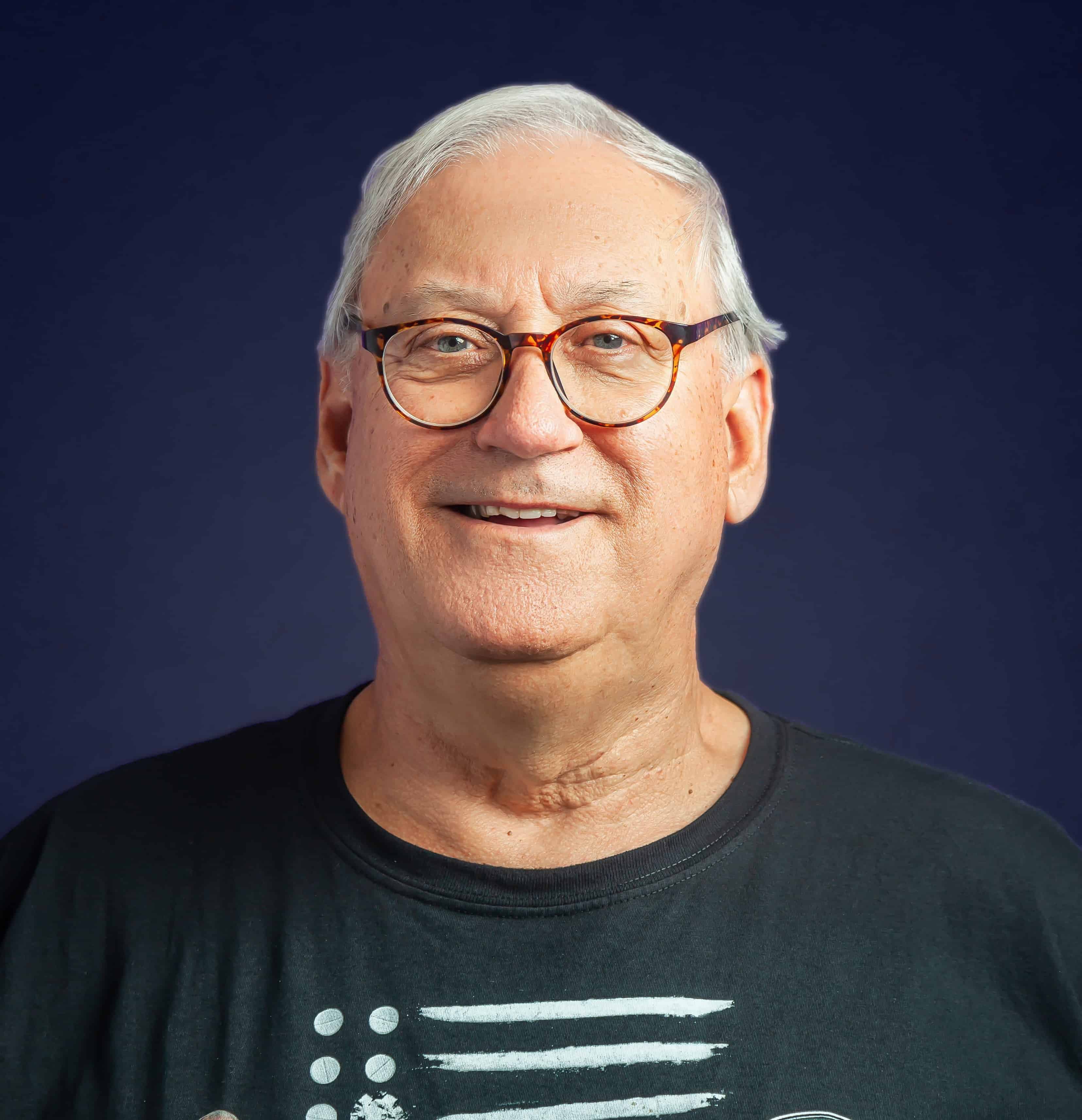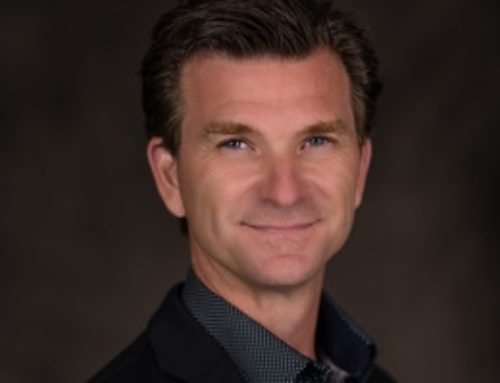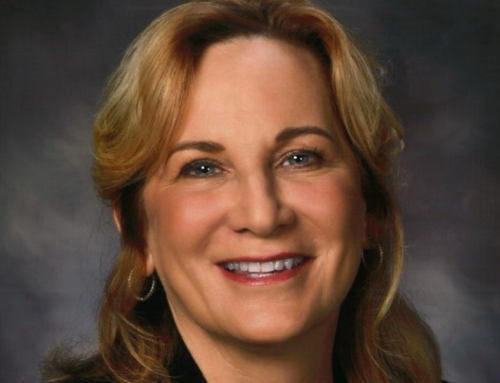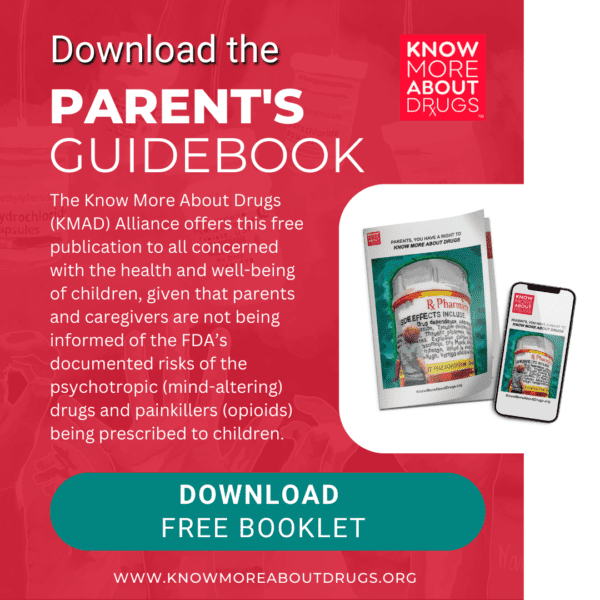The life you save could be yours, your children’s, or your grandchildren’s.
My name is Dan Schneider, and I am “The Pharmacist” featured in the Netflix docuseries, viewed over 100 million times worldwide. Netflix summarizes it as follows, “After his son’s tragic death, a Louisiana pharmacist goes to extremes to expose the rampant corruption behind the opioid addiction crisis.”
The 4-part docuseries greatly helped raise public awareness of opioids and addiction, tracing the epidemic back to its origins more than two decades ago. It serves to depict the horror that a family endures in the wake of a loved one lost to a drug-related death. And in my case, the lengths a grief-stricken parent will go through in order to effect societal change in the name of a beloved son.
For many of us who have lost sons and daughters to addiction and overdose, whether through illicit drug use or due to the negligence of a prescribing doctor, we have been able to turn our grief into advocacy. Unable to save our children, we have been willing to do whatever it takes to prevent other families from experiencing similar tragedies.
For many of us who have lost sons and daughters to addiction and overdose, whether through illicit drug use or due to the negligence of a prescribing doctor, we have been able to turn our grief into advocacy.
My journey to advocacy was prompted by the death of my son, due to a drug-related murder, on April 14, 1999. And it was only at this point that I became aware of my son’s drug addiction. As described in the docuseries, I went to extreme lengths to bring his killer to justice. I also became relentless in studying drug addiction and its effects on the brain and championing informed consent to the best of my abilities.
As a pharmacist who witnessed the opioid epidemic in the early 2000s, I had observed an astounding increase in the use of opioids, particularly OxyContin. This drug with FDA approval was being mass-marketed to an ever-increasing youthful population. The FDA had allowed the manufacturers to state this drug was less addictive than other opioids, and salesmen pushed the term “rarely addictive.” With my newfound research, I did not buy this. Many others did. Many doctors took advantage of the addictive nature of these drugs to run their own “pill mills” (doctors or clinics dispensing prescription drugs illegally or with total disregard for patient safety).
I exposed and helped shut down a few of the pill-mill doctors. I also did my best to inform patients and parents of the risk of these mind-altering drugs. As a pharmacist, when presented with a prescription for an Opioid, I would carefully go over the written prescription information verbally, but I would also write on the back of the prescription, “Very addictive. Can produce respiratory depression and can lead to death” and then I had the patient sign this!
For the past 20 years, I have attempted to educate and inform parents and other advocates to reduce the tragic effects of drugs, whether obtained illegally or by prescription. Addiction certainly does not depend upon the means by which the drugs were obtained. The idea that just because a doctor writes the prescription thereby rules out any addiction or dependence potential, is false.
For the past 20 years, I have attempted to educate and inform parents and other advocates to reduce the tragic effects of drugs, whether obtained illegally or by prescription.
Though my focus has been on opioids, I have learned that lack of awareness and information has led to many other issues and even loss of life with other prescription drugs. For years I have thought psychiatric drugs were being overprescribed, particularly to our most vulnerable, our children.
And this is why I support the Know More About Drugs Alliance and its efforts to educate parents, not only on the risks of prescribed opioids but other prescription drugs commonly prescribed to children that can lead to drug dependence and abuse. For example, many parents may be unaware that the U.S. Drug Enforcement Administration (DEA) classifies ADHD drugs in the same highly addictive category as opioids! This is information parents should be aware of before agreeing to administer such prescription drugs to children.
We must band together to help educate the public, and specifically parents on the risks of prescription drugs, particularly those that can cause addiction and overdose. For this reason, I say hats off to Nancy Cartwright and the Know More About Drugs Alliance for lending their voice to this vital effort. It is a noble goal to help educate parents on the prescribed opioids and psychotropic drugs affecting our youth. This information can save the lives of children, teens, young adults and reduce needless family tragedies.
We must band together to help educate the public, and specifically parents on the risks of prescription drugs, particularly those that can cause addiction and overdose.
I am a pharmacist and a parent. And as such, I know we have the right to have enough information provided, including side effects and warnings, concerning any drug prescribed to our children.
We who have gained hard-found wisdom concerning the effects of drugs on the brain and the possible tragic consequences of their use have a responsibility to share this information and to advocate for public awareness and informed consent concerning the use of prescription drugs.
We need to make sure this information is available to patients and parents. We also need more medical experts and advocates to join our cause, along with those who have become more informed to help us spread this message and advocate for the cause. The life you save could be yours, your children’s, or your grandchildren’s.
The life you save could be yours, your children’s, or your grandchildren’s.
Remember, “We are all in this together.”
Dan Schneider RPh.
“The Pharmacist”
Why I support the Alliance to empower parents with documented risks of prescribed psychotropic drugs on children
This will be my first-ever blog article, and it is with great humility that I am allowed to be an Alliance Member to “Know More About Drugs” (KMAD). First, let me provide you a little background about me.
I am a licensed clinical psychologist (in Wisconsin), a former Chief Psychologist for the Dept. of Corrections in WI, a former disability examiner for Social Security Administration, the past Executive Director of the International Society for Ethical Psychology and Psychiatry and the former Clinical Director of a doctoral training program here in WI. I have expertise in long-term psychotropic drug outcome studies, forensic clinical psychology and working with children and young adults. I have provided written testimony and research to the FDA—helping establish the Black Box warning labels on SSRI antidepressants—been an invited guest speaker to both the United States Congress and Senate of Mexico—speaking about psychiatric drug induced violence and suicide in children and young adults—and I conduct treatment consultations throughout the country. My wife and I also have been together for 32 years and have two wonderful teenagers who are having to navigate the challenges of our society.
Knowledge about KMAD is so greatly needed, as it literally saves the lives of children, teens and their families.
KMAD is about information and informed consent. It is empowering parents by giving them the knowledge and facts, right from the FDA, about the risks of psychotropic drugs being recommended for their child. These FDA Medication Guides (MedGuides) and information they provide, alert parents to the fact that many of these drugs may increase the symptoms they want to reduce, may create new severe adverse reactions, may create dependence, and may cause their child to commit suicide and acts of violence if left unchecked – and without much notice. According to Jim Gottstein, Harvard graduate attorney, “These facts are virtually never disclosed to patients, thus breaching the obligation to obtain informed consent, and often legally constituting battery.”
It is empowering parents by giving them the knowledge and facts, right from the FDA, about the risks of psychotropic drugs being recommended for their child.
I hope you find this blog informative and enjoyable. I will be sharing research, information about how mind-altering psychotropic drugs impact psychological development, a few personal stories and photos, and certainly my own emotional reactions to both success stories and tragedies currently happening. Future blogs will feature at least a few article topics and or facts that parents and readers can use in their own lives, and with their own children. I look forward to us getting to Know More About Drugs…together!
So let’s start off with something positive. I referred a mother to the Know More About Drugs website about a month ago, as she had numerous questions about whether certain prescribed drugs could cause the unusual behavior she was seeing in her son. She indicated that she had already called the prescribing doctor and could not get in to see him for over a month. The mother said that a nurse who spoke to her, indicated the medications her son was taking would not be causing her son to exhibit the behavior she was starting to see. When she heard about the work that I do, she contacted me and I was able to refer to her the FDA Medication Guides through the KMAD website, so she could learn right from the source. The child had originally been seen for problems with test-taking and “blanking out” in school. He was placed on Adderall, and then months later when he was not eating much, becoming aggressive, not sleeping well and having arguments that led to crying, he was prescribed Prozac, reportedly for depression. All the behavioral and emotional problems began to increase months later, and the mother questioned if the medications could have been causing the worsening of “symptoms” (i.e. behaviors, thoughts and feelings).
Upon reading the Medication Guides on both Adderall and Prozac, she realized that all the concerning behaviors and worsening thoughts could be caused by the very medications her doctor was recommending to increase (per her son’s last appointment).
Now, I would love to say that the story was simple and the mother took this new information, got her son off the drugs, and all the bad stuff went away, but that is not what happened. Instead, the mother did research on how to taper him off the medications, began doing this against my advice, as it is vital to have an MD supervising any such changes in medications, and subsequently she began to see her son becoming even more aggressive, have worsening sleep problems and worsening behavior in school. However, the mom knew this might occur because these medications can cause dependence—both psychologically and physiologically, so she persevered in tapering off the medications. I am happy to say that a few months later, her son was off all medications, was working with a counselor and doing Mindfulness skill training and Nurtured Heart techniques. He was also sleeping well through the night, not showing any verbal or behavioral aggression, and getting great daily teacher feedback.
Had it not been for this mother doing her own research, with the help of KMAD, this child may have been just another child that I get to see in residential care, a group home, the prison system or in a hospital. This is not meant to be alarming, as I unfortunately hear story after story of an initial positive response, followed by a progressive worsening of living for so many children.
That said, I want to reiterate that any parents who are considering taking their child off any psychotropic drug, only do so under doctor’s supervision, as withdrawal from these drugs can range from mild to severe.
I am thrilled that KMAD is here to assist parents in learning more about the drugs being recommended for their child. Having the ability to know this information before starting a recommended psychotropic mind-altering drug is so important.
Welcome to being a critical thinker, flexible and open-minded about the pros and cons of recommended psychotropic drugs. Knowing how a drug might impact your child increases your ability to make informed decisions and keep your family safe. Do your teens know this information? They should, as it is their bodies and futures.
Warmly,
“Dr. Toby”
Why I believe every parent should utilize the FDA’s MedGuides in order to prevent serious adverse side effects.
I was not surprised when I learned a young teen I have been working with attempted to hang herself with a sweater in the school’s bathroom stall. Nor was I shocked when I learned this same 8th grader attempted to hang herself in her bedroom the year before. What I wonder now is how and when did these heartbreaking, gut wrenching events cease to stun me?
What I know is somewhere along my journey as a nurse and an attorney I began to see a disturbing correlation between children being prescribed psychiatric medication and an increase in acts of self-harm. When I was a nursing student, one semester and clinical rotation was dedicated to psychiatry. That section contained little, if any, teachings related to medicating children for depression, concentration or behavior. As an attorney, I began working with children caught up in the juvenile or family court system. To no one’s surprise, these children exhibited signs of anxiety, confusion and anger.
For the past twenty-five years, I have witnessed a gradual acceleration in the prescription of psychiatric drugs for ADD/ADHD, anxiety, depression, sleep disturbances and behavioral changes. Simultaneously, I have observed an increase in acts of self-harm, suicidal ideations and psychosocial difficulties among children and adolescents. The National Survey of Children’s Health recently reported 1.2% of children aged 3-5 years old; 7.6% of children aged 6-11 years old; and 12.9 % of children aged 12 – 17 years old are on “medication for ADD/ADHD, autism/ASD, or difficulties with emotions, concentration, or behavior”. And oftentimes more than one medication is prescribed. The rise in polypharmacy has outpaced our understanding of how drug interactions affect the developing brain.
The National Survey of Children’s Health recently reported 1.2% of children aged 3-5 years old; 7.6% of children aged 6-11 years old; and 12.9 % of children aged 12 – 17 years old are on “medication for ADD/ADHD, autism/ASD, or difficulties with emotions, concentration, or behavior”.
If our goal is to help children in distress, the first step must be to arm ourselves with as much information as possible. The young teen I mentioned earlier had been prescribed Prozac, Zoloft, fluoxetine, Buspar, Atarax and melatonin. Each time a new diagnosis was added (migraines, PTSD, suicidal ideations, anxiety, depression, sleep disturbance with nightmares) or an act of self-harm occurred, another medication was added. Neither parent had been educated on the risks associated with each medication (and certainly not in combination) so their feeling of helplessness was understandable. To date, nothing had been working to ease their daughter’s distress and no other lifeline was being offered. The question of why their daughter’s symptoms had worsened was going unanswered.
If our goal is to help children in distress, the first step must be to arm ourselves with as much information as possible.
If you are here reading this blog, chances are these behaviors, diagnoses, medications and statistics are familiar and have in some way touched your life—whether it is through your work with children or the care you are providing your own child. The first step in meeting the needs of these children is to gather as much information as possible and that includes an understanding of the medications prescribed. A comprehensive starting point is the Know More About Drugs website. This alliance provides information related to the psychiatric drugs being prescribed to children. At the core of this central point of reference is the FDA Medication Guides. MedGuides are U.S. Food and Drug Administration-approved documents that address the issues specific to a particular drug in order to help avoid serious side effects.
The first step in meeting the needs of these children is to gather as much information as possible and that includes an understanding of the medications prescribed.
The FDA requires the MedGuides be issued with certain prescribed drugs when it has been determined the information provided is necessary to prevent serious adverse effects; and that the patient decision-making should be based on information about a known serious side effect and patient adherence to directions for use are essential to effectiveness. Listed in alphabetical order, each drug is linked to the information needed to help parents and care providers make an informed decision regarding the administration of these medications.
The FDA requires the MedGuides be issued with certain prescribed drugs when it has been determined the information provided is necessary to prevent serious adverse effects;
Make accessing this information your first step toward informed decision making. Once informed, you will then be able to provide the safest and most effective intervention for a child in distress.
Camille L. Harlan RN, JD, CLCP
December 20, 2021
The life you save could be yours, your children’s, or your grandchildren’s.
My name is Dan Schneider, and I am “The Pharmacist” featured in the Netflix docuseries, viewed over 100 million times worldwide. Netflix summarizes it as follows, “After his son’s tragic death, a Louisiana pharmacist goes to extremes to expose the rampant corruption behind the opioid addiction crisis.”
The 4-part docuseries greatly helped raise public awareness of opioids and addiction, tracing the epidemic back to its origins more than two decades ago. It serves to depict the horror that a family endures in the wake of a loved one lost to a drug-related death. And in my case, the lengths a grief-stricken parent will go through in order to effect societal change in the name of a beloved son.
For many of us who have lost sons and daughters to addiction and overdose, whether through illicit drug use or due to the negligence of a prescribing doctor, we have been able to turn our grief into advocacy. Unable to save our children, we have been willing to do whatever it takes to prevent other families from experiencing similar tragedies.
For many of us who have lost sons and daughters to addiction and overdose, whether through illicit drug use or due to the negligence of a prescribing doctor, we have been able to turn our grief into advocacy.
My journey to advocacy was prompted by the death of my son, due to a drug-related murder, on April 14, 1999. And it was only at this point that I became aware of my son’s drug addiction. As described in the docuseries, I went to extreme lengths to bring his killer to justice. I also became relentless in studying drug addiction and its effects on the brain and championing informed consent to the best of my abilities.
As a pharmacist who witnessed the opioid epidemic in the early 2000s, I had observed an astounding increase in the use of opioids, particularly OxyContin. This drug with FDA approval was being mass-marketed to an ever-increasing youthful population. The FDA had allowed the manufacturers to state this drug was less addictive than other opioids, and salesmen pushed the term “rarely addictive.” With my newfound research, I did not buy this. Many others did. Many doctors took advantage of the addictive nature of these drugs to run their own “pill mills” (doctors or clinics dispensing prescription drugs illegally or with total disregard for patient safety).
I exposed and helped shut down a few of the pill-mill doctors. I also did my best to inform patients and parents of the risk of these mind-altering drugs. As a pharmacist, when presented with a prescription for an Opioid, I would carefully go over the written prescription information verbally, but I would also write on the back of the prescription, “Very addictive. Can produce respiratory depression and can lead to death” and then I had the patient sign this!
For the past 20 years, I have attempted to educate and inform parents and other advocates to reduce the tragic effects of drugs, whether obtained illegally or by prescription. Addiction certainly does not depend upon the means by which the drugs were obtained. The idea that just because a doctor writes the prescription thereby rules out any addiction or dependence potential, is false.
For the past 20 years, I have attempted to educate and inform parents and other advocates to reduce the tragic effects of drugs, whether obtained illegally or by prescription.
Though my focus has been on opioids, I have learned that lack of awareness and information has led to many other issues and even loss of life with other prescription drugs. For years I have thought psychiatric drugs were being overprescribed, particularly to our most vulnerable, our children.
And this is why I support the Know More About Drugs Alliance and its efforts to educate parents, not only on the risks of prescribed opioids but other prescription drugs commonly prescribed to children that can lead to drug dependence and abuse. For example, many parents may be unaware that the U.S. Drug Enforcement Administration (DEA) classifies ADHD drugs in the same highly addictive category as opioids! This is information parents should be aware of before agreeing to administer such prescription drugs to children.
We must band together to help educate the public, and specifically parents on the risks of prescription drugs, particularly those that can cause addiction and overdose. For this reason, I say hats off to Nancy Cartwright and the Know More About Drugs Alliance for lending their voice to this vital effort. It is a noble goal to help educate parents on the prescribed opioids and psychotropic drugs affecting our youth. This information can save the lives of children, teens, young adults and reduce needless family tragedies.
We must band together to help educate the public, and specifically parents on the risks of prescription drugs, particularly those that can cause addiction and overdose.
I am a pharmacist and a parent. And as such, I know we have the right to have enough information provided, including side effects and warnings, concerning any drug prescribed to our children.
We who have gained hard-found wisdom concerning the effects of drugs on the brain and the possible tragic consequences of their use have a responsibility to share this information and to advocate for public awareness and informed consent concerning the use of prescription drugs.
We need to make sure this information is available to patients and parents. We also need more medical experts and advocates to join our cause, along with those who have become more informed to help us spread this message and advocate for the cause. The life you save could be yours, your children’s, or your grandchildren’s.
The life you save could be yours, your children’s, or your grandchildren’s.
Remember, “We are all in this together.”
Dan Schneider RPh.
“The Pharmacist”
Dan Schneider, RPh.
“The Pharmacist”
Dan Schneider is a retired Pharmacist and long-time advocate whose journey to avenge the death of his son – shedding light on the opioid epidemic in New Orleans in the process – is detailed in the 4-part Netflix docuseries, “The Pharmacist.” Schneider was born in 1950 and has lived in Chalmette, Louisiana all his life. One year after Katrina, Schneider moved to Mandeville, in the Eighth Ward, where he continues to reside today. Schneider’s advocacy has mostly been in St. Bernard, within the nearby Seventh Ward, until the Netflix docuseries gave him an international voice. After over a decade of advocating, Schneider likes to think his hard-found wisdom can benefit others.
